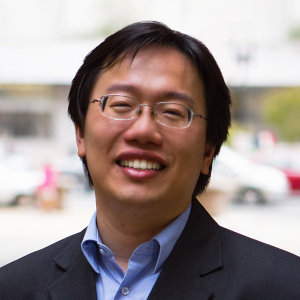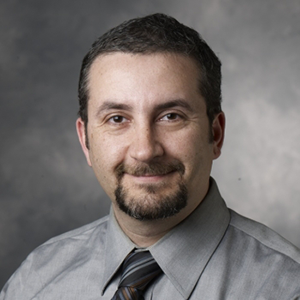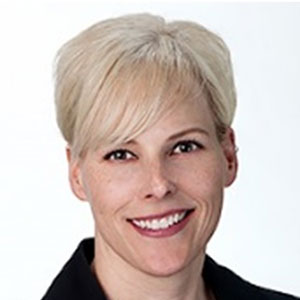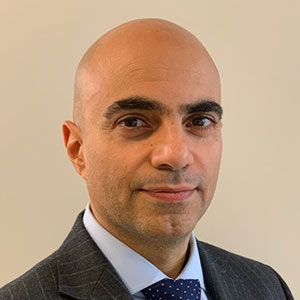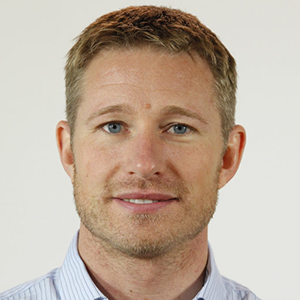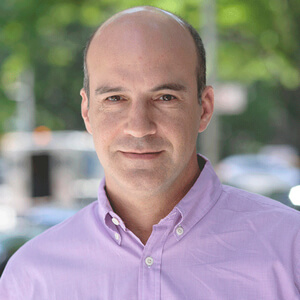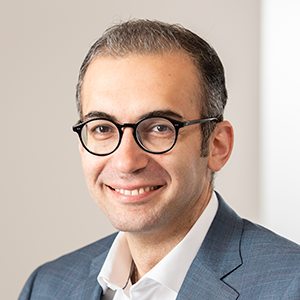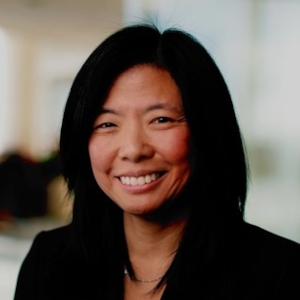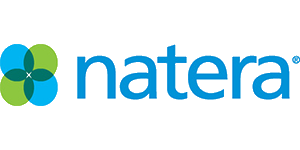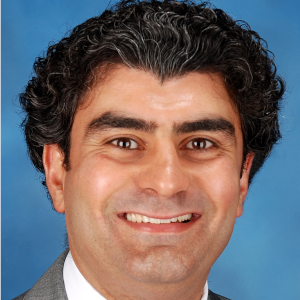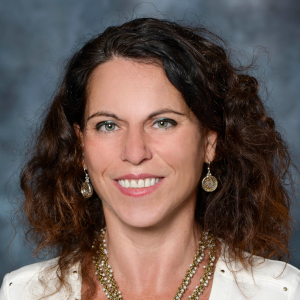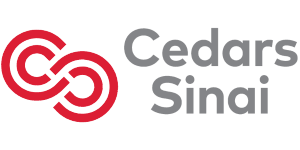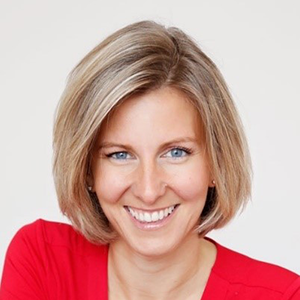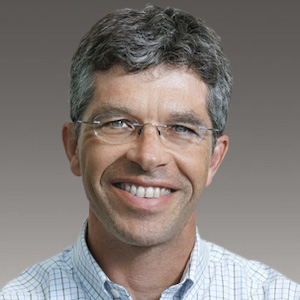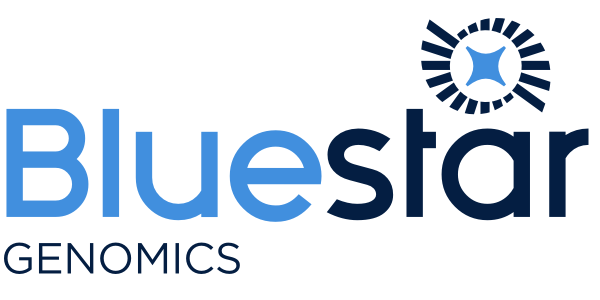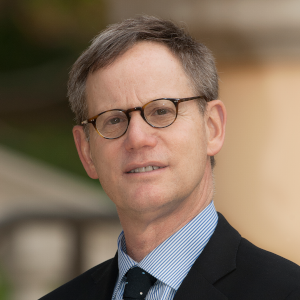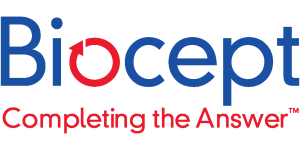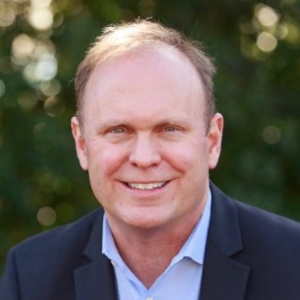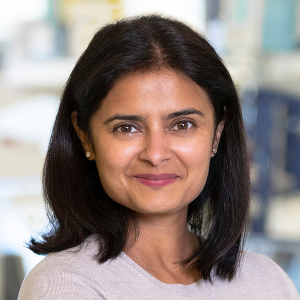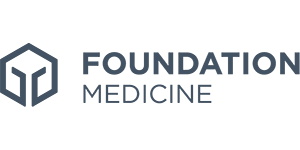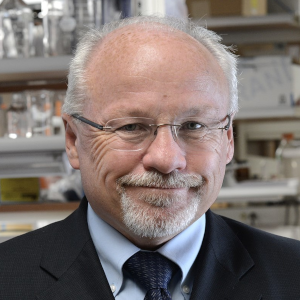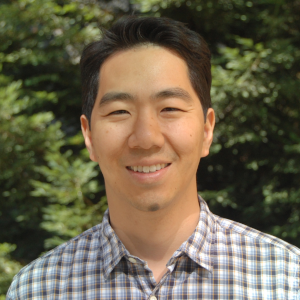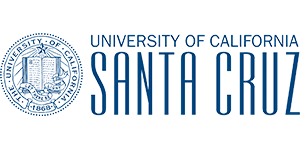The analysis of blood for circulating tumor cells (CTC), circulating tumor DNA (ctDNA), extracellular vesicles, or more recently, tumor-educated platelets has opened new avenues for cancer diagnostics, including early detection of tumors, improved risk assessment and staging, as well as early detection of relapse to improve patient care. The track will introduce the up-to-date technologies used in liquid biopsy and review the clinical utilities in cancer screening, detection of minimal residual diseases, selection of molecular-targeted drugs, as well as monitoring of treatment responsiveness.
Sessions:
- Early Cancer Detection- Status quo, Technical and Clinical Challenges, and the Future (PANEL)
Session Chair: Jimmy Lin, Freenome
- Peter Bach, Delfi Diagnostics
- Ash Alizadeh, Stanford
- Amir Ali Talasaz, Guardant Health
- Anne-Renee Hartman, Adela
- How is Liquid Biopsy Changing the Testing Paradigm for Oncology Patients? (PANEL)
Session Chair: Rebecca Brandes, Agilent
- Edward Abrahams, PMC
- Blandine Merino, Agilent
- Adrian Lee, UPMC - The Emerging Role of ctDNA for Molecular Residual Disease (MRD) Assessment and Recurrence Monitoring
- Minetta Liu, Natera - Liquid Biopsy for Screening, Diagnosis, Prognosis and Therapy Guidance
Session Chair: Sam Salman, miR Scientific
- Frederick Baehner, Exact Sciences
- The Advantages of Exosomes as a Liquid Biopsy Based Markers
Session Chair: Johan Skog, Exosome Diagnostics
- Jamil Azzi, Harvard
- Dolores Di Vizio, Cedars-Sinai Medical Center
- Showcase
- Dave Mullarkey, Bluestar Genomics
- Stephane Mouradian, Personalis
- Michael Dugan, Biocept
- Priti Hegde, Foundation Medicine
- Steven Soper, The University of Kansas
- Maggie Rougier-Chapman, Personal Genome Diagnostics
- Daniel Kim, UCSC
Session Chair Profile
Biography
Jimmy Lin, MD, Ph.D., MHS was the Chief Scientific Officer (CSO), Oncology at Natera (NASDAQ: NTRA), where he lead the development of new diagnostic technologies for cancer. Dr. Lin is also a 2016 Senior TED Fellow and Founder & President of Rare Genomics Institute, the world's first platform to enable any community to leverage cutting- edge biotechnology to advance understanding of any rare disease. Previously, Dr. Lin led the ClinOmics program in the Genetics Branch of the National Cancer Institute (NIH/NCI). Before this, he led the computational analysis of the first-ever exome sequencing studies of cancer at Johns Hopkins and was a research instructor at Washington University in St. Louis. He has numerous publications in Science, Nature, Cell, Nature Genetics, and Nature Biotechnology, and has been featured in Forbes, Bloomberg, Wall Street Journal, New York Times, Washington Post, BBC, TIME, and the Huffington Post.
Session Chair Profile
Biography
The major focus of Dr. Alizadeh’s research group is to attain a better understanding of the initiation, maintenance, and progression of lymphoid tumors, and their response to existing and novel therapies toward improving current treatment strategies. In this effort, they employ tools from functional genomics, computational biology, molecular genetics, and mouse models. They hope to apply this knowledge towards the design of clinical trials in the treatment of patients with lymphoma, leukemia, and myeloma.
Session Chair Profile
Biography
Rebecca Brandes is a member of the Companion Diagnostics (CDx) Division specializing in Oncology Market Development at Agilent. This team is charged with the objective to help with the education and consultation on advanced genomic technologies for use in CDx including expertise in genomic technologies, clinical laboratory workflows, current testing methodologies and paradigms and genetics and oncology. Joining Agilent in 2014 with 18 years of expertise gained from leadership roles, her background includes CLIA-CAP lab operations, developing and submitting products for regulation, developing integrated workflows for routine testing and business development for companion diagnostics with an emphasis on Oncology. She holds degrees from High Point University in Biology, Biochemistry and Anthropology and a master's in Molecular Genetics from Wake Forest University. Prior to joining QIAGEN, Asuragen, Affymetrix, Stanford’s StartX not-for-profit accelerator and Agilent to lead their marketing organizations, Rebecca spent several years running a high-throughput, CAP/CLIA clinical molecular oncology laboratory.
Session Chair Profile
Biography
Sam is co-founder of miR Scientific and is the company’s Chairman and Chief Executive Officer. A physics scholar who through his leadership of Impact NRS LLC, the global science-to-commercial platform, has dedicated his professional career to develop and manage complex systems innovations, Sam has established himself to be a true visionary driven to affect global impact. He is an accomplished world class leader who understands science and its business applications for resolving key challenges facing humanity on a global scale. A champion of public/private partnerships, he is a member of the Board of Trustees and Board of Selectors of the Jefferson Awards for Public Service. Sam attended the American University of Paris in France and Macalester College in St. Paul, MN.
Session Chair Profile
Biography
Johan Skog is a renowned, well-published thought leader in exosome science having pioneered breakthrough discoveries about exosomes and other microvesicles and their vital role as cell messengers and disease proliferators. While at Massachusetts General Hospital/Harvard Medical School, Dr. Skog discovered that tumor-derived mutations can be detected in exosome RNA from serum and other biofluids, findings which were published in Nature Cell Biology in 2008. Additionally, he demonstrated that exosomes serve to deliver messages to other cells, inducing changes favorable to the proliferation of cancer. At Exosome Diagnostics, Dr. Skog continues to pioneer critical advancements in diagnostics and expand the field of exosome biology. Dr. Skog’s research background includes virology, gene therapy, brain tumors, RNA and biomarker discovery, and he is an inventor on several patents. Dr. Skog earned his Master of Biomedical Sciences and Doctorate at Umeå University, Sweden.
Clinical Dx Showcase:
Exosome Diagnostics
Exosome Diagnostics, a leader in developing liquid biopsy-based diagnostics, is the first and only company that can simultaneously isolate and analyze exosomal RNA and cfDNA in a single step to achieve highest sensitivity for detecting rare mutations. ExosomeDx empowers the world’s leading biopharma companies in exploring this unique technology.
Exosomes: New Standard In Multi-Analyte Liquid Biopsy Testing
Speaker Profile
Biography
Health policy and payment expert, pulmonary physician, and lung cancer epidemiologist, Peter has devoted his career to repairing defects in the healthcare delivery system that impede access to high-quality cancer care and working to ameliorate healthcare’s cost crisis. His work spans seminal studies including that identification of racial gaps in lung cancer care, the development of the first lung cancer risk prediction model (the “Bach model”), lead authorship on multiple lung screening guidelines, and definitional work on pharmaceutical pricing and value. Peter previously served as Senior Adviser at the US Centers for Medicare Medicaid Services and mentor on many National Institutes of Health K awards. He has been elected to the National Academy of Medicine, American Society for Clinical Investigation, and the Johns Hopkins Society of Scholars.
Speaker Profile
Biography
AmirAli Talasaz currently serves as co-founder and co-CEO of Guardant Health, a leading precision oncology company. AmirAli is an entrepreneur in the rare genomics and clinical diagnostics fields. Prior to co-founding Guardant Health, he was Senior Director of Diagnostics Research at Illumina and led the efforts for emerging clinical applications of next-generation genomic analysis. During that time, he developed different genomic technologies suitable for clinical applications. Before Illumina, he founded Auriphex Biosciences, which focused on purification and genetic analysis of circulating tumor cells for cancer management. The technology was acquired by Illumina in 2009. During his academic years, he led the Technology Development group at Stanford Genome Technology Center. AmirAli received his PhD in electrical engineering and MSc in management science from Stanford University.
Speaker Profile
Biography
Dr. Liu most recently served as professor of oncology and chair of research in the Department of Oncology at Mayo Clinic in Rochester, MN. In her role at Mayo, she also held a dual appointment in the Department of Laboratory Medicine and Pathology and served as co-leader of the Genomics in Action Strategic Priority for the Center of Individualized Medicine. Dr. Liu brings a wealth of experience in developing blood-based biomarkers to predict treatment benefit and outcomes in solid tumors and in developing novel therapeutics to improve survival, with a particular focus in breast cancer. She chaired the Circulating Biomarker Working Group of the Alliance for Clinical Trials in Oncology. She also co-chaired the Correlative Science Working Group and led several multi-institutional clinical trials through the Translational Breast Cancer Research Consortium.
Speaker Profile
Biography
Jamil R. Azzi is an Associate Professor of Medicine at Harvard Medical School. He is the medical director of the vascularized composite allo-transplantation (VCA) and the associate director of the kidney and pancreas transplant at Brigham and Women’s Hospital. Dr. Azzi is a physician scientist who is leading a NIH funded laboratory that focuses on understanding the immune-regulatory arm of the immune system in transplantation, autoimmunity and cancer with the goal of developing more targeted and safer therapeutic strategies. Currently, a major focus of his research is CD4 and CD8 regulatory T cells and their activation induced cell death in addition to engineering cell therapies. Dr. Azzi’s laboratory is also exploring multiple genomics and proteomics approaches to develop biomarkers that noninvasively detect rejection in kidney transplant recipients and measure the immune function of immunosuppressed patients.
Talk
Beyond Concept to Clinical Application in Kidney Diseases
The traditional biomarkers currently used to monitor a kidney allograft for rejection or autoimmune mediated kidney diseases are late markers of injury and they lack sensitivity and specificity. Biopsies on the other hand, are invasive and costly. Urinary exosomes, tiny vesicles released into the urine that carry parent cells’ proteins and nucleic acids, reflect the biologic function of the parent cells within the kidney, including immune cells. Their stability in urine makes them a potentially powerful tool for liquid biopsy and a noninvasive diagnostic biomarker for kidney-transplant rejection. This talk will describe the current efforts to develop urinary exosomes-based biomarkers to detect allograft kidney rejection and other kidney related diseases.
Speaker Profile
Biography
Dolores Di Vizio is a molecular pathologist, and a molecular and cell biologist, with 20 years of experience on urological cancer. Currently she is a Professor at Cedars-Sinai Medical Center. She published over 115 peer-reviewed manuscripts, including in high impact journals (Cancer Cell, Cell, Cancer Research, Nat Med, Nat Cell Biol,) and made important contributions to cancer research in a number of areas. Her work has been cited over 16,000 times and her H-index is 56. The Di Vizio lab is funded by the NIH and the DoD including by a NIH/NCI program for rigor and reproducibility in extracellular vesicle research to identify circulating biomarkers of cancer. One of the main effort in the lab is to develop new methodologies based on identification and characterization of heterogenous populations of cancer-derived extracellular vesicles in the plasma of patients with cancer. She serves as senior board member of the International Society of Extracellular Vesicles (ISEV) and is an associate editor for the Journal of Extracellular Vesicles.
Talk
Development of Liquid Biopsy Platforms Using Cancer-Derived Extracellular Vesicles
Cancer cell-derived Extracellular Vesicles (EVs) are attractive candidates for liquid biopsy because they contain protein, RNA, DNA, lipids and metabolites, including molecules that are functionally relevant to cancer progression or that are involved in therapeutic response. New approaches are being implemented combining new technologies with gold standard methodologies for EV purification and characterization.
Speaker Profile
Biography
Blandine heads the NGS-based, cancer diagnostics product and service strategy across the continuum of biopharma partnerships, CLIA-based tests and distributed kits. She brings two decades of experience as an executive in Life Science and Consumer Packaged Goods (CPG), developing innovative strategies, new products, and leading business organizations. Prior to Joining Agilent, Blandine founded and grew Bio2Market, a consulting firm focused on supporting companies at the intersection of Machine Learning and Life Sciences with go-to-market strategies and commercial execution plans for drug discovery, diagnostic or digital health companies. Before founding Bio2Market, during her time at Guardant Health, Blandine led a cross-functional team to expand the use of their next-generation sequencing test in cancer drug development clinical trials, with over 50 biopharma companies. Following, as VP of Business Development at Freenome, she implemented their business strategy to accelerate a multi-analyte platform powered by machine learning for a cancer, early-detection test.
Speaker Profile
Biography
Stephane leads the Business Development & Marketing team at Personalis. Previously, Stephane was at Illumina where he led Illumina’s companion diagnostic partnerships with pharmaceutical companies in oncology, the international expansion of NIPT (Non Invasive Prenatal Testing) and Illumina’s venture investments in start-ups such as Twist (synthetic biology) and Boreal Genomics (liquid biopsy), for which he served as Illumina-appointed board observer. Prior to Illumina, Stephane was at Caliper Lifesciences for 15 years. He developed and launched several microfluidic DNA and protein testing products that became standards in genomic laboratories today, and he led corporate development for Caliper. Stephane holds a Ph.D. in Analytical Chemistry from the University of Wisconsin, Madison and a Master’s degree in Chemical Engineering from Strasbourg University, France.
Talk
NeXT Personal: The Next Generation in MRD Testing for Solid Tumors
Speaker Profile
Biography
Dave is a life sciences industry veteran with an extensive track record of success across the life sciences industry of scaling and delivering value with therapeutic, diagnostic, and life science tools companies in both private and public settings. Most recently, he was president and chief executive officer of Omniome, where he guided and scaled the DNA sequencing company from the early technology development stage through the delivery of its beta prototype and ultimately leading to its sale to PacBio in 2021. Prior to Omniome, Dave served as the president and chief operating officer of Ariosa Diagnostics, a diagnostics company focused on the cell-free DNA non-invasive prenatal testing that was acquired by Roche in 2014. Post-acquisition, Dave served as lifecycle leader, site head, and a core member of the Roche Sequencing Solutions leadership team. He has also held positions at Johnson & Johnson, Eli Lilly and Company, Valeant Pharmaceuticals, and Dow Pharmaceuticals Sciences.
Talk
Epigenomic Cancer Detection as Next Generation Liquid Biopsy
Dynamic DNA demethylation events can be measured in an unbiased accurate manner through click-chemistry based detection of 5-hydromethylcytosine (5hmC). Our novel epigenomics technology platform combines machine learning with our proprietary 5hmC biomarker analysis and other biomarker feature sets to provide a precise screening method that can detect cancer earlier than established methods.
Speaker Profile
Biography
Edward Abrahams, Ph.D., is the President of the Personalized Medicine Coalition, an education and advocacy organization based in Washington, DC. Representing innovators, scientists, patients, providers and payers, PMC promotes the understanding and adoption of personalized medicine concepts, services and products for the benefit of patients and the health system. It has grown from its original 18 founding members to more than 220 today. Previously, Dr. Abrahams was the Executive Director of the Pennsylvania Biotechnology Association, where he spearheaded the successful effort that led to the Commonwealth of Pennsylvania’s investment of $200 million to commercialize biotechnology in the state. Earlier, he had been Assistant Vice President for Federal Relations at the University of Pennsylvania and held a senior administrative position at Brown University. Dr. Abrahams worked for seven years for the U.S. Congress, including as a legislative assistant to Senator Lloyd Bentsen and as an economist for the Joint Economic Committee.
Speaker Profile
Biography
Michael C. Dugan, M.D., leads Biocept’s clinical strategic development and oversees its CAP-accredited CLIA clinical laboratory. He is an experienced physician and biotechnology executive who has directed several major commercial reference laboratories and helped launch numerous novel molecular diagnostic assays and platforms used in oncology, infectious disease and public health applications such as cancer screening, monitoring, diagnosis and therapy selection. Dr. Dugan has held leadership positions with Clinical Genomics, Exact Sciences, Genzyme Genetics, Quest Diagnostics, AmeriPath, Specialty Laboratories and UCLA. Dr. Dugan is board-certified in Anatomic and Clinical Pathology. He received a bachelor’s degree in biology from the University of Notre Dame and a medical degree from the University of Arizona College of Medicine. He completed his post-graduate medical education in anatomic pathology at Yale-New Haven Hospital and continued training in pathology and laboratory medicine at Children’s Hospital Los Angeles and UCLA.
Talk
Cerebrospinal Fluid Assay Aids in Management of Metastatic Cancer with CNS Involvement
Approximately 50% of brain metastases have actionable mutations not detected in the primary tumor. A novel liquid biopsy assay detects and quantifies tumor cells in the cerebrospinal fluid and identifies actionable biomarkers. Recently presented data show the assay identifies actionable HER2 and genetic heterogeneity in patients with breast cancer that has metastasized to the brain.
Speaker Profile
Biography
Dr. Baehner previously served as Vice President, Pathology & Oncology Development, Genomic Health, Inc. He is the recipient of numerous awards for his expert research works in related fields. He completed his study at the University of California, San Francisco. His research interests reflect in his wide range of publications in various national and international.
Speaker Profile
Biography
At Foundation Medicine, Dr. Hegde oversees clinical product development, cancer genomics, and early-stage research, as well as regulatory and quality assurance, to accelerate advancement of the Company’s leading comprehensive genomic profiling portfolio. She is passionate about innovation in cancer research and translating innovations to precision medicine tools to advance care for patients. Dr. Hegde has spent nearly two decades in the biopharmaceutical industry, with a proven track record in drug development, registration, and commercialization of therapeutics with companion diagnostics in cancer immunotherapy. Prior to joining Foundation Medicine, Dr. Hegde spent 12 years at Genentech. Most recently, Dr. Hegde served as senior director and principal scientist in oncology biomarker development at Genentech, during which she established and led the biomarker group accountable for translational science strategies in cancer immunotherapy. Dr. Hegde was instrumental in the approvals for atezolizumab in both the United States and European Union, as well as its forthcoming diagnostic filings.
Speaker Profile
Biography
Prof. Soper (University of Kansas) has secured extramural funding totaling >$165M, has published >225 peer-reviewed manuscripts (h index = 70; 18,889 citations, 31 book chapters, and is the author of 12 patents. He is the founder of a startup company, BioFluidica, which is marketing devices for the analysis of liquid biopsy samples. His list of awards includes the Ralph Adams International Award for Bioanalytical Chemistry, Chemical Instrumentation by the American Chemical Society, the Benedetti-Pichler Award for Microchemistry, Fellow of the AAAS, Fellow of Applied Spectroscopy, Fellow of the Royal Society of Chemistry, R&D 100 Award, Distinguished Masters Award at Louisiana State University and Outstanding Scientist/Engineer in Louisiana. Soper has granted 55 PhDs and 7 MS degrees to students under his mentorship. He currently heads a group of 17. Soper is Director of an NIH-funded Biotechnology Resource Center, which seeks to develop new microfluidic and nanofluidic tools for the biomedical community.
Talk
Liquid Biopsies for Managing Cancer Diseases
We have developed tools for the efficient isolation and molecular analysis of liquid biopsy markers, including circulating tumor cells (CTCs), cell free DNA, and extracellular vesicles. In this talk, we will discuss the use of a microfluidic device for analyzing CTCs to determine response to therapy of pancreatic cancer patients.
Speaker Profile
Biography
Dr. Kim is an Assistant Professor of Biomolecular Engineering at the University of California Santa Cruz and an Associate Member of the Canary Center at Stanford for Cancer Early Detection. His laboratory investigates the functions of noncoding RNA “dark matter” in stem cells and cancer using genomic and genome engineering technologies. Leveraging the unique properties of noncoding RNA, his research program aims to discover novel biomarkers for cancer early detection via RNA liquid biopsy. His noncoding RNA research has been recognized by awards from the Damon Runyon Cancer Research Foundation and the National Academy of Sciences.
Clinical Dx Showcase:
UC Santa Cruz
One of the world’s most respected public research universities, UC Santa Cruz offers rigorous academic programs and cutting-edge research opportunities. UCSC's unique, cross-disciplinary approach, combined with an unwavering commitment to research excellence has resulted in paradigm-changing discoveries since its founding.
Cancer early detection via RNA liquid biopsy
Novel genomic approaches are revealing the immense potential of noncoding RNAs for cancer early detection.







